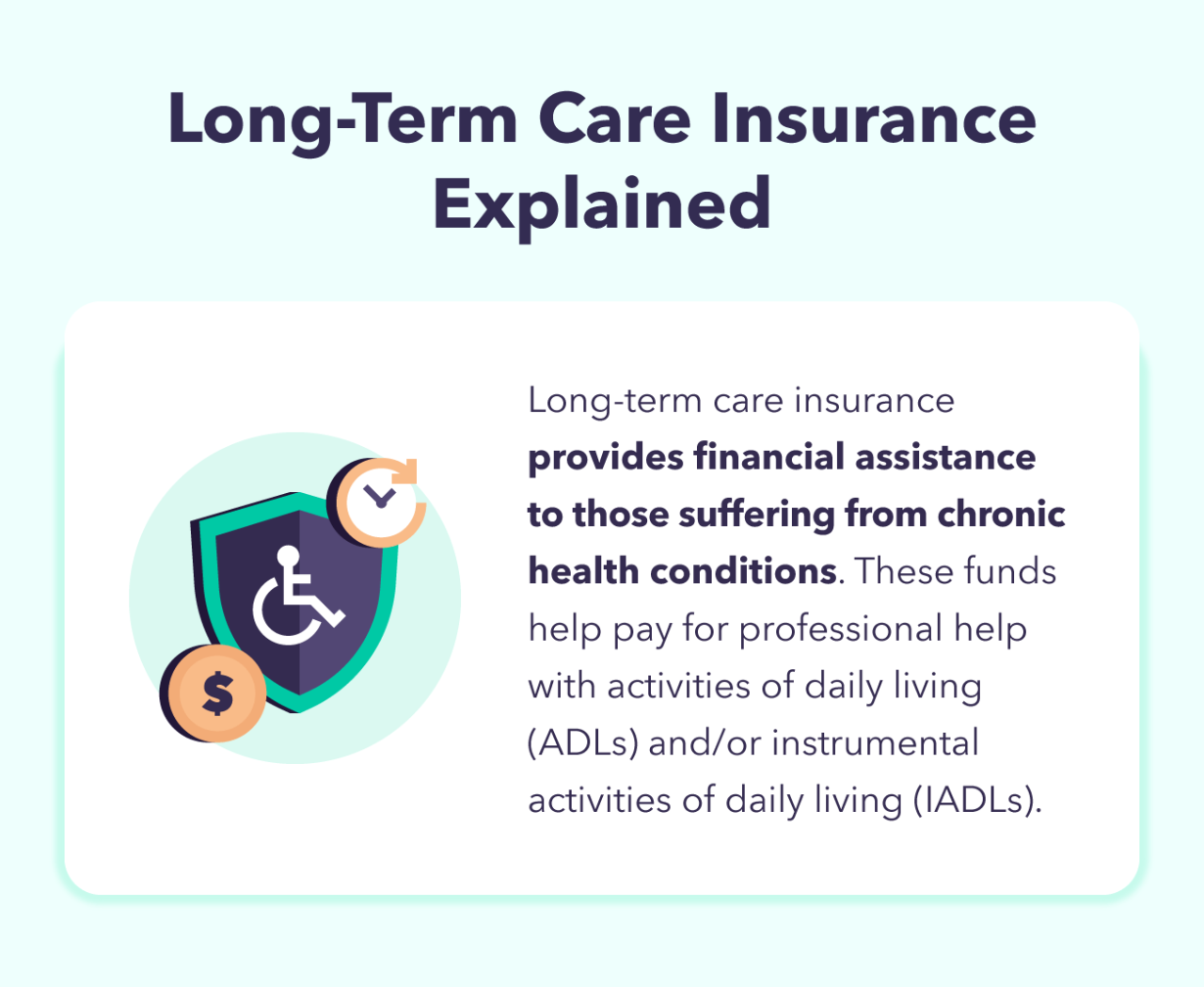Diving into the world of Long-term care insurance, this intro is here to give you a sneak peek into the ins and outs of this essential coverage. Get ready to explore the key aspects and details that make Long-term care insurance a crucial part of financial planning.
As we delve deeper, you’ll uncover the specific types of care covered, factors influencing costs, and the benefits and drawbacks that come with Long-term care insurance. So, buckle up and let’s navigate through this vital topic together.
What is Long-term Care Insurance?
Long-term care insurance is a type of insurance coverage that helps cover the costs of long-term care services, such as assistance with activities of daily living like bathing, dressing, and eating. It is designed to provide financial support for individuals who need ongoing care due to chronic illness, disability, or cognitive impairment.
Purpose of Long-term Care Insurance
Long-term care insurance is meant to protect individuals from high out-of-pocket expenses associated with long-term care services. It helps ensure that individuals can receive the care they need without depleting their savings or putting a financial burden on their loved ones.
- Long-term care insurance can help individuals maintain their independence and quality of life by providing access to professional care services.
- It offers peace of mind by covering the costs of long-term care, which can be substantial and potentially overwhelming for many individuals and families.
- Having long-term care insurance can also help individuals avoid relying solely on government assistance programs, allowing them to have more control over their care options.
Who Typically Purchases Long-term Care Insurance
Typically, individuals who purchase long-term care insurance are those who are planning for their future healthcare needs and want to protect their assets. Some common characteristics of individuals who purchase long-term care insurance include:
- Individuals who have significant assets they want to protect from being depleted by long-term care costs.
- People who have a family history of chronic illnesses or conditions that may require long-term care services.
- Individuals who want to have more control over their care options and quality of life as they age.
Coverage Details
Long-term care insurance typically covers a range of services to help individuals with activities of daily living when they are unable to care for themselves due to age, illness, or disability.
Types of Care Covered
- Nursing home care
- Assisted living facilities
- In-home care services
- Adult day care
- Hospice care
Examples of Services Covered
- Assistance with bathing, dressing, and grooming
- Medication management
- Physical therapy
- Meal preparation and feeding
- Transportation to medical appointments
Limitations or Exclusions
- Pre-existing conditions may not be covered
- Some policies may have a waiting period before benefits kick in
- Certain services may have limits on the duration of coverage
- Not all long-term care expenses may be covered
Cost Factors
When it comes to long-term care insurance, the cost can vary depending on several factors. Understanding what influences these costs, such as age and health, can help you make informed decisions and manage the expenses effectively.
Age and Health Impact
- Age plays a significant role in determining premiums for long-term care insurance. Generally, the younger you are when you purchase a policy, the lower your premiums will be.
- Health also affects the cost of insurance. If you have pre-existing conditions or poor health, you may end up paying higher premiums.
- Insurance companies assess the risk of you needing long-term care based on your age and health status, which influences the cost of coverage.
Strategies to Manage Costs
- Consider purchasing long-term care insurance at a younger age to lock in lower premiums.
- Shop around and compare quotes from different insurance providers to find the most affordable option that meets your needs.
- Opt for a shorter benefit period or choose a longer elimination period to reduce the cost of premiums.
- Explore hybrid long-term care insurance policies that combine life insurance or annuities, which may offer more flexibility in managing costs.
Benefits and Drawbacks

Long-term care insurance offers a range of benefits that can provide financial protection and peace of mind for individuals and their families. However, like any insurance product, there are also potential drawbacks and limitations to consider when evaluating whether long-term care insurance is the right choice for you.
Benefits of Long-term Care Insurance
- Financial Security: Long-term care insurance helps cover the high costs of long-term care services, including nursing home care, assisted living facilities, and in-home care.
- Preservation of Assets: By having long-term care insurance, you can protect your savings and assets from being depleted by long-term care expenses.
- Choice and Control: With long-term care insurance, you have the flexibility to choose the type of care you want and where you receive it, giving you more control over your healthcare decisions.
- Peace of Mind: Knowing that you have a plan in place to cover long-term care costs can provide peace of mind for you and your loved ones, reducing stress during difficult times.
Drawbacks of Long-term Care Insurance
- Cost: Long-term care insurance premiums can be expensive, especially if you purchase a policy later in life. Balancing the cost of premiums with the potential benefits can be challenging for some individuals.
- Coverage Limitations: Some long-term care insurance policies have limitations on the types of services covered, the length of coverage, and eligibility requirements, which may not fully meet your long-term care needs.
- Health Qualifications: To qualify for long-term care insurance, you must meet certain health criteria. Pre-existing conditions or age-related health issues may limit your ability to obtain coverage or affect premium rates.
- Potential Rate Increases: Long-term care insurance premiums can increase over time, making it difficult to budget for future expenses and potentially causing financial strain.

